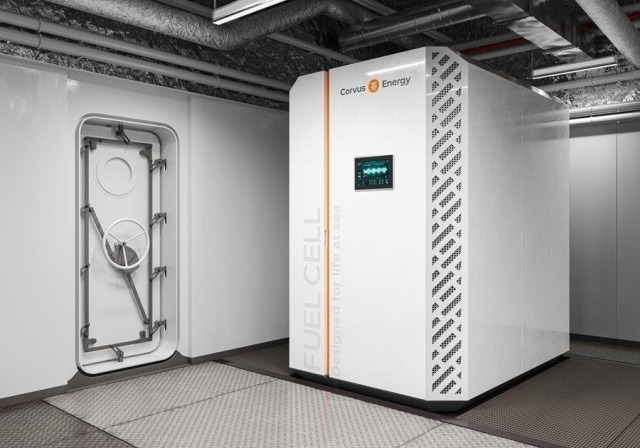Corvus Energy, a global leader in zero-emission solutions for the maritime sector, has secured funding for the incorporation of ammonia cracker technology into its Pelican Fuel Cell system.
The initiative, dubbed “APOLO,” is a collaborative effort involving multiple partners, aiming to address the complexities of power conversion from ammonia while developing an efficient and versatile ammonia cracking technology tailored for the maritime industry.
Commencing on January 1st, 2024, the four-year program will showcase the conversion of power from commercially available fuel cell systems utilizing hydrogen derived from ammonia cracking, producing an impressive power output of 125 kW.
Additionally, the project will conduct trials of an ammonia cracker paired with an innovative ammonia engine running on a blend of ammonia and hydrogen, facilitating a comparative analysis of these diverse technologies.
Corvus Energy is joined in this project by partners such as H2Site, Tecnalia, Technische Universiteit Eindhoven, 1 CUBE, Chalmers Tekniska Hogskola, Nuvera, Astander, Fertiberia, and LEC GMBH, with Tecnalia leading as the project coordinator.
Corvus Energy will collaborate with H2Site and other consortium members in the development, integration, testing, and demonstration of the ammonia cracker alongside their Corvus Pelican PEM Fuel Cell. Moreover, Corvus Energy will spearhead a work package focused on establishing a business case for these integrated systems for shipboard use, Svenn Kjetil Haveland, VP Development Projects, said.
The funding for the project is sourced from the Horizon Europe Framework Program, specifically the Horizon-CL5-2023-D5-01 initiative. The technologies arising from APOLO are anticipated to address the needs of the first 30,000 ships in the market, with an initial focus on vessels featuring 1 to 10 MW propulsion.

